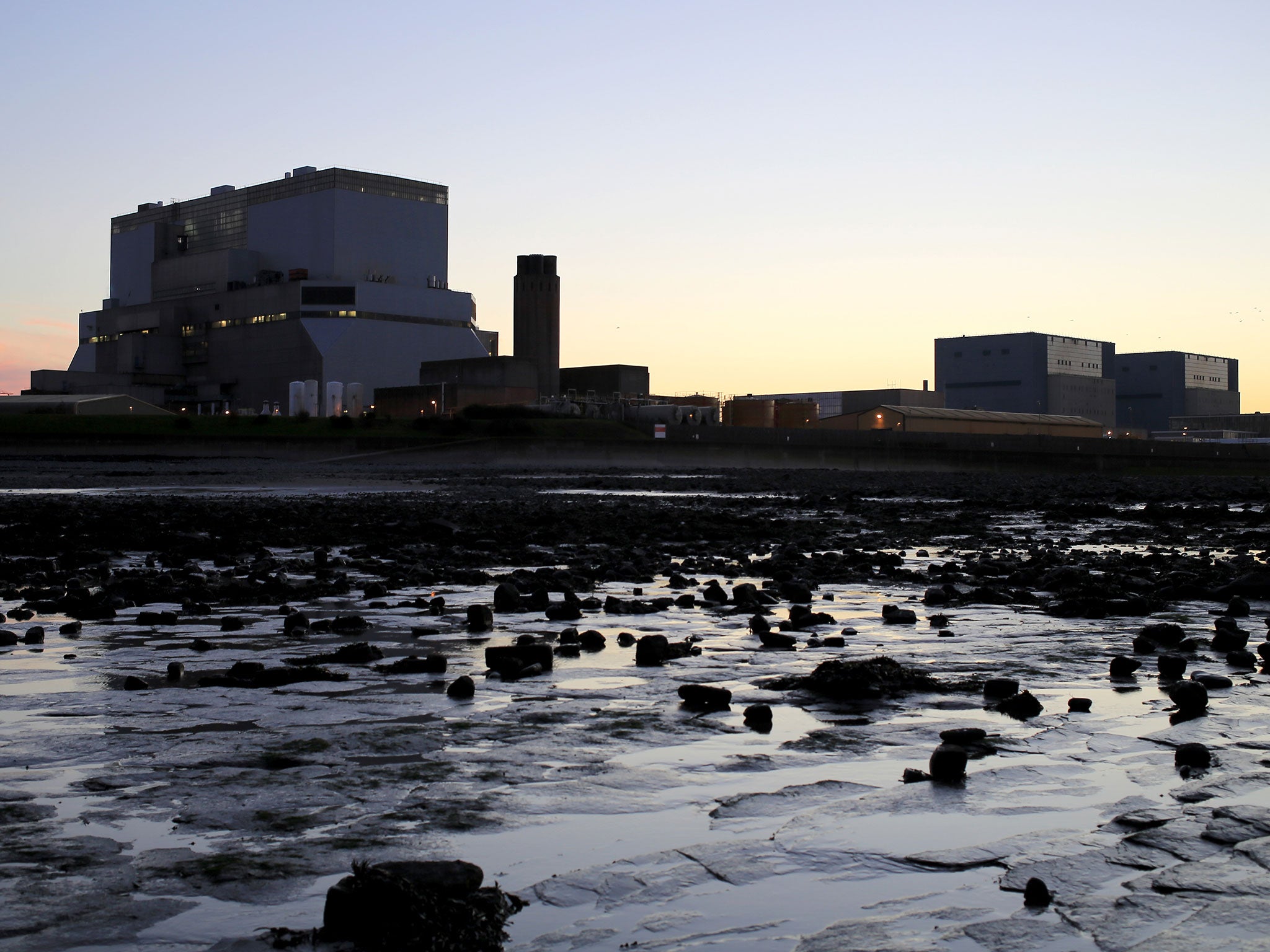Secrecy over plan for new nuclear plant is 'disgraceful', says veteran campaigner
The French company EDF is set to build a new station at Hinkley Point C

The Government is putting the commercial interests of a French energy giant over the British taxpayer in a “disgraceful” decision not to release documents on the UK’s first new nuclear power station in 25 years, according to a veteran anti-nuclear campaigner.
Dr David Lowry, an independent consultant and member of Nuclear Waste Advisory Associates, has asked the Department for Energy and Climate Change (Decc) to release documents related to the proposed construction by the French company EDF of Hinkley Point C. The plant on the Somerset coast is expected to cost £24.5bn. The documents were requested under Freedom of Information legislation, but Decc is unwilling to release them.
Campaigners believe the plant is a costly mistake and have attacked plans to pay EDF no less than £92.50 per megawatt hour for its electricity, far higher than the current market rate. The subsidy, known as the strike price, would last 35 years – over half the plant’s expected operational life.
The European Union granted state aid approval last year, but anti-nuclear politicians from Austria have filed a challenge at the European Court of Justice, because they believe this will distort the EU’s energy market.
Supporters say Hinkley would meet 7 per cent of the UK’s energy needs and create 25,000 job opportunities, and act as a catalyst for a new fleet of British nuclear reactors.
Dr Lowry asked Decc for all documents given to the European Commission in support of the UK’s application for a state aid agreement for Hinkley. These include a report into potential competition distortions, and a review of the evolution of Britain’s energy industry.
The Information Commissioner’s Office upheld the department’s decision to refuse disclosure, which officials said would “place a strain on resources”.
But Dr Lowry seized on Decc’s point that providing the documents would also be time-consuming for EDF.
Decc’s decision states: “We would also need to ask EDF to consider the information that is covered by Decc’s non-disclosure agreement with them in greater detail than they have already… Due to the volume of information, it would require a great deal of effort on EDF’s part to consider the information covered by the non-disclosure agreement and provided to the Commission to assist with their investigation.”
Dr Lowry said: “Decc puts the commercial interests of EDF, a foreign company, before the interests of the British taxpayers and electricity bill payers. This tells you all you need to know about this disgraceful judgement [to refuse disclosure].”
A Decc spokeswoman said: “The public interest is always carefully considered when providing responses to FoI requests.”
Subscribe to Independent Premium to bookmark this article
Want to bookmark your favourite articles and stories to read or reference later? Start your Independent Premium subscription today.

Join our commenting forum
Join thought-provoking conversations, follow other Independent readers and see their replies